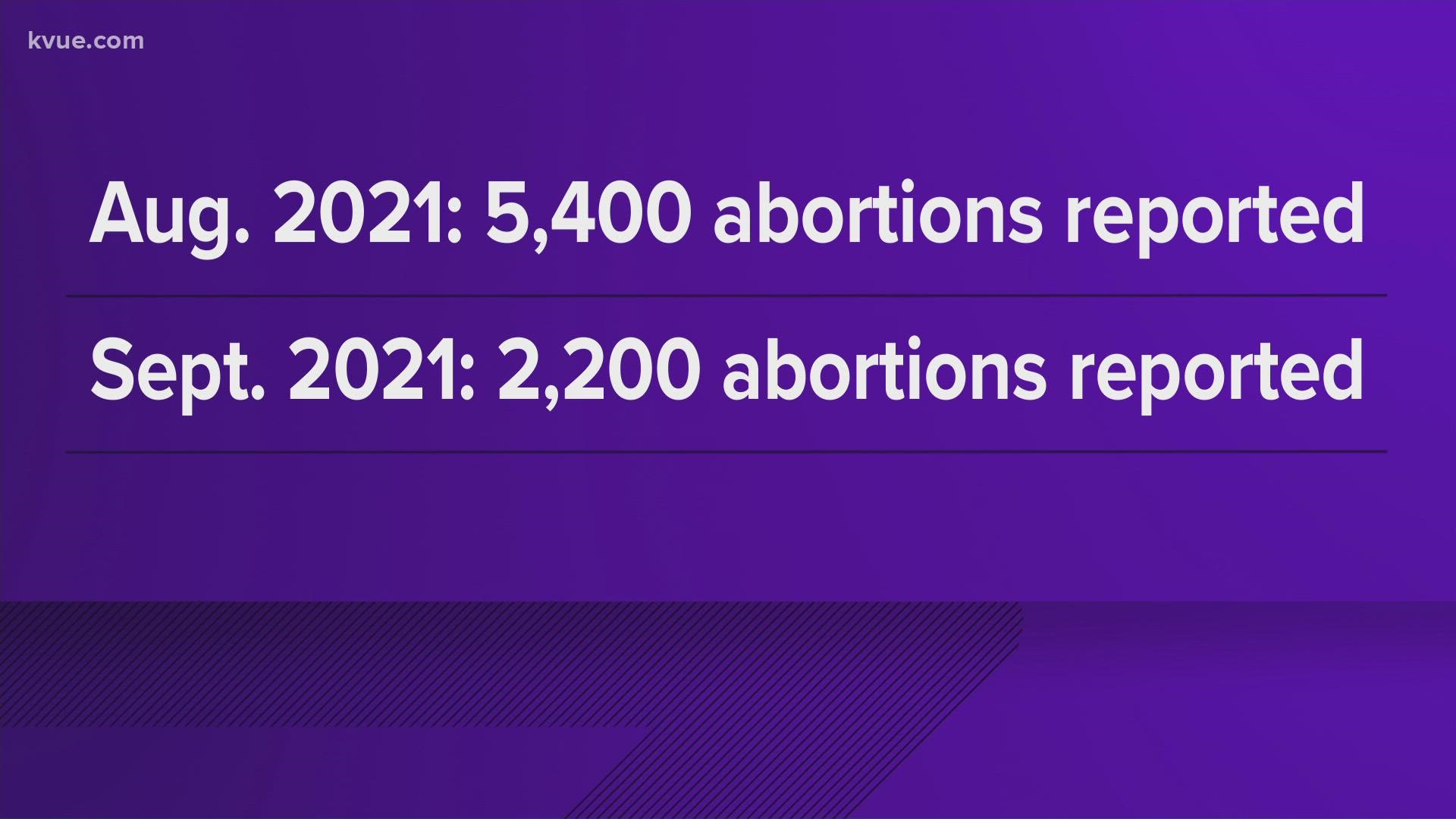AUSTIN, Texas — The demand for abortion-inducing medication spiked the month after Texas significantly limited abortion access, according to a report from The Texas Tribune. Demand has remained high since.
The Tribune reports that new data from a University of Texas at Austin researchers reviewed requests for abortion-inducing medication made to Aid Access, an international nonprofit that provides the medication through the Internet to people who can't otherwise legally obtain it.
The data shows that prior to September 2021, Aid Access typically received an average of 10.8 requests per day from Texans. On Sept. 1, the so-called "Texas Heartbeat Act" went into effect, banning abortions after about six weeks of pregnancy, before many know they're pregnant.
The data shows that in the first week after the law went into effect, Aid Access received an average of 137.7 daily requests from Texas – an increase of over 1,000%.
Abigail Aiken, the lead researcher on the study, told the Tribune that the spike in requests shows the "uncertainty and chaos" created by the abortion ban going into effect. She also said the demand for the medication has remained higher than normal in the months since.
The Tribune reports that medical abortion is typically a two-drug regimen of mifepristone and misoprostol that has been shown to be effective at terminating a pregnancy through the first 10 weeks.
In December, the U.S. Federal Drug Administration lifted a restriction that required the medication to be dispensed in person, allowing it to be prescribed via telemedicine and sent through the mail. However, Texas law does not allow the medication to be prescribed through telemedicine or mailed and the state has limited its use to the first seven weeks of pregnancy.
On Feb. 10, The Associated Press reported that abortions fell by 60% in the first month under the Texas Heartbeat Act, which is the most restrictive abortion law in the U.S. in decades.
Aiken told the Tribune that it's impossible to know how and when patients use the medication they access through Aid Access or how many are terminating pregnancies through other means. However, as the U.S. Supreme Court considers whether to overturn constitutional protection for abortion, Aiken said this new Texas data is notable.
“It’s clear from this research and many studies that just because you make abortion harder to get, it doesn’t mean the need for abortion goes away,” Aiken told the Tribune. “And many people, they will look for other ways of doing that.”
PEOPLE ARE ALSO READING:

